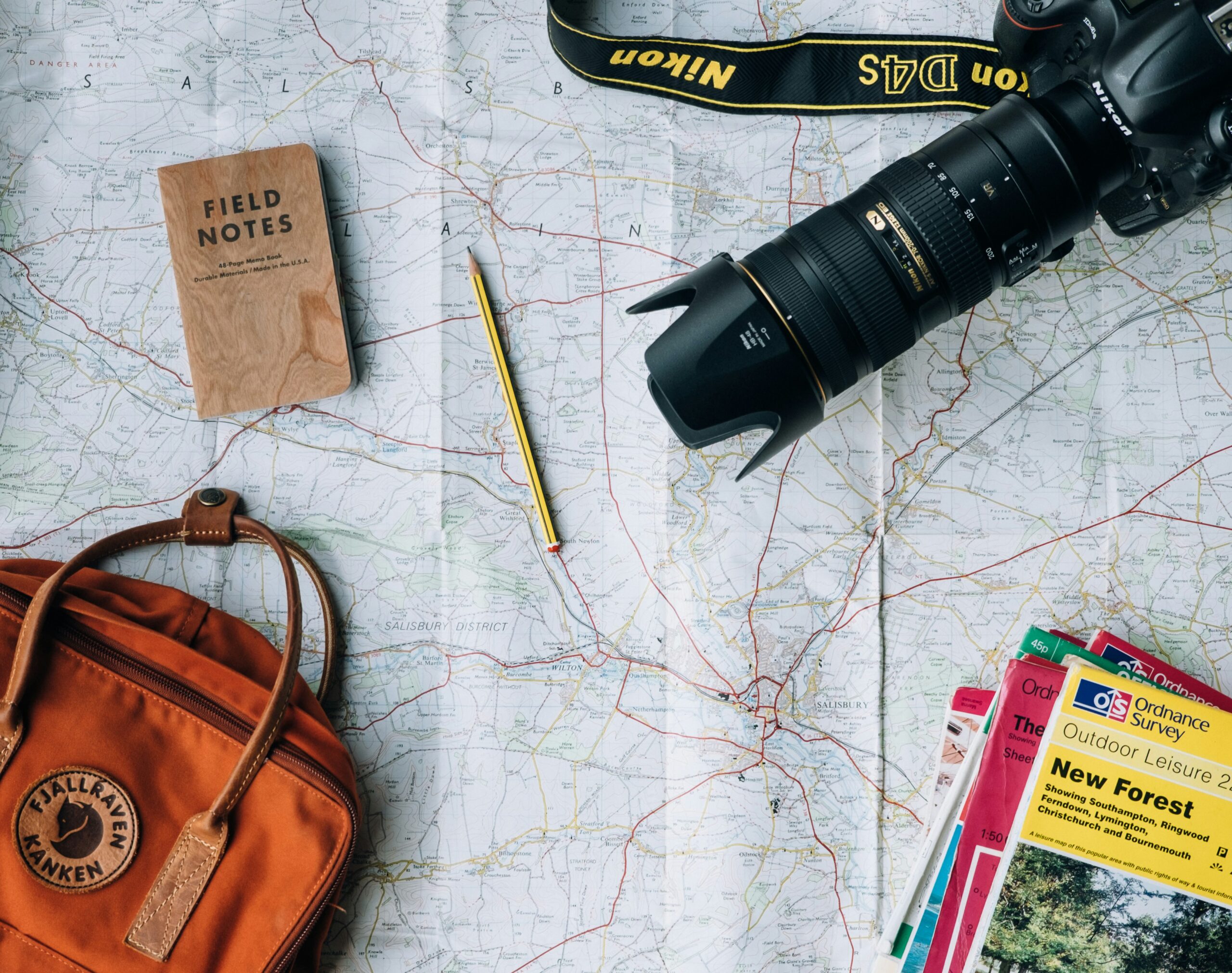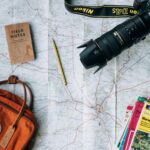Planning a trip can be both exciting and overwhelming. With so many details to consider, it’s easy to overlook something important. Whether you’re a seasoned traveler or planning your first adventure, these top 10 tips will help ensure your next trip is smooth, enjoyable, and memorable.
1. Choose Your Destination Wisely
Selecting the right destination is the first step in planning a successful trip. Consider your interests, budget, and the time of year. Research potential destinations to understand the best times to visit, local customs, and any travel advisories. Use travel blogs, forums, and social media for inspiration and first-hand experiences.
- Weather Considerations: Check the weather patterns for your destination to pack appropriately and plan your activities accordingly.
- Local Events and Festivals: Look into local events or festivals that might enhance your travel experience or affect your travel dates.
- Travel Restrictions: Be aware of any travel restrictions and visa requirements.
- Special Interests: If you have specific interests, such as hiking, diving, or historical sites, choose destinations that cater to these activities.
2. Set a Realistic Budget
A well-planned budget is crucial for avoiding financial stress during your trip. Consider all potential expenses, including flights, accommodation, meals, transportation, activities, and souvenirs. Allocate a portion of your budget for unexpected costs and emergencies. Utilize budgeting apps or spreadsheets to keep track of your expenses.
- Currency Exchange Rates: Be aware of the exchange rates and plan accordingly. Consider using a travel credit card with no foreign transaction fees.
- Daily Allowance: Calculate a daily allowance to help manage your spending on food, activities, and incidental costs.
- Cost-Saving Tips: Look for discounts, travel passes, and free activities to make the most of your budget.
- Local Prices: Research the cost of living at your destination to get a better idea of how much you’ll need.
3. Book Flights and Accommodation Early
Booking your flights and accommodation in advance can save you money and ensure you get the best options. Use comparison websites to find the best deals on flights and hotels. Consider alternative accommodations like Airbnb, hostels, or vacation rentals for a unique experience and potential cost savings.
- Flight Alerts: Set up price alerts for flights to monitor changes and get the best deals.
- Loyalty Programs: Join airline and hotel loyalty programs to earn points and benefits.
- Flexible Dates: Be flexible with your travel dates to take advantage of cheaper flights and accommodation rates.
- Location Matters: Choose accommodations that are centrally located or near public transportation to save time and money.
4. Plan Your Itinerary
Having a well-thought-out itinerary helps maximize your time and ensures you don’t miss any must-see attractions. List the key places you want to visit and activities you want to do. Consider travel times between locations and factor in some downtime to relax and explore spontaneously. Be flexible and open to changing plans if needed.
- Prioritize Activities: Identify your must-see attractions and prioritize them in your schedule.
- Local Transportation: Research local transportation options such as buses, trains, and rideshares to move around efficiently.
- Reserve Tickets: Book tickets for popular attractions in advance to avoid long lines and ensure availability.
- Guided Tours: Consider guided tours for a richer experience and to learn more about the local culture and history.
5. Research Local Culture and Customs
Understanding the local culture and customs enhances your travel experience and shows respect to the local community. Learn a few basic phrases in the local language, familiarize yourself with common etiquette, and be aware of any cultural norms or taboos. This knowledge will help you blend in and avoid misunderstandings.
- Dress Code: Be aware of local dress codes, especially when visiting religious or culturally significant sites.
- Tipping Practices: Understand the tipping customs to ensure you show appreciation appropriately.
- Cultural Sensitivity: Respect local traditions, beliefs, and practices to foster positive interactions.
- Local Etiquette: Learn about local dining etiquette, greeting customs, and other social norms.
6. Pack Smart and Light
Packing efficiently can make your trip more comfortable and stress-free. Create a packing list to ensure you don’t forget essentials. Pack versatile clothing that can be layered and mixed and matched. Don’t forget important items like travel documents, medications, chargers, and a first aid kit. Consider the local climate and activities you’ll be doing.
- Packing Cubes: Use packing cubes to organize your luggage and save space.
- Carry-On Essentials: Keep essential items like medications, a change of clothes, and important documents in your carry-on bag in case of luggage delays.
- Weight Limits: Be mindful of airline weight limits for checked and carry-on luggage.
- Multi-Purpose Items: Pack items that serve multiple purposes, like a sarong that can be used as a towel, blanket, or cover-up.
7. Ensure Travel Insurance
Travel insurance is a must for any trip. It provides coverage for unexpected events such as medical emergencies, trip cancellations, lost luggage, and more. Compare different insurance policies to find one that offers comprehensive coverage at a reasonable price. Keep a copy of your insurance policy and emergency contact numbers with you.
- Emergency Contacts: Save the emergency contact numbers of your insurance provider for quick access.
- Travel Assistance Services: Some insurance policies offer travel assistance services for emergencies and travel-related issues.
- Coverage for Activities: Ensure your policy covers any adventurous activities you plan to do, such as skiing or scuba diving.
- Policy Details: Read the fine print to understand what is covered and any exclusions.
8. Stay Connected
Staying connected is essential for safety and convenience. Check if your mobile phone plan includes international coverage, or consider purchasing a local SIM card or portable Wi-Fi device. Download essential travel apps such as maps, translation tools, and local guides. Make sure your family and friends know your itinerary and how to reach you.
- Offline Maps: Download maps for offline use to navigate without an internet connection.
- Emergency Numbers: Know the local emergency numbers for police, ambulance, and fire services.
- Communication Apps: Use communication apps like WhatsApp, Skype, or Viber to stay in touch with family and friends.
- Local SIM Card: Consider getting a local SIM card for cheaper calls and data usage.
9. Plan for Health and Safety
Your health and safety should be a top priority while traveling. Research any required vaccinations or health advisories for your destination. Pack a basic first aid kit and any necessary medications. Stay informed about local safety concerns and follow common-sense precautions such as avoiding poorly lit areas at night and not displaying valuables.
- Health Precautions: Follow any health advisories or precautions, such as drinking bottled water and avoiding certain foods.
- Local Health Facilities: Know the locations of nearby hospitals or clinics in case of emergencies.
- Safety Tips: Keep a photocopy of your passport and important documents in case of loss or theft.
- Travel Alerts: Sign up for travel alerts from your government to stay informed about any potential risks.
10. Prepare for Flexibility and Fun
No matter how well you plan, unexpected situations can arise. Embrace the unpredictability and stay flexible. Sometimes, the best travel experiences come from unplanned adventures. Stay positive, open-minded, and ready to adapt. Remember, the goal is to enjoy your trip and create lasting memories.
- Backup Plans: Have backup plans for key activities in case of bad weather or other disruptions.
- Spontaneity: Allow time for spontaneous adventures and interactions with locals.
- Travel Journal: Keep a travel journal to document your experiences and memories.
- Relax and Enjoy: Don’t stress if things don’t go as planned. Relax and make the most of every situation.
Conclusion
Planning a trip can be a detailed process, but with these top 10 tips, you’ll be well-prepared for your next adventure. From choosing the right destination and setting a budget to staying connected and ensuring your health and safety, each step plays a crucial role in creating a seamless travel experience. So, start planning, stay flexible, and get ready to embark on an unforgettable journey!


